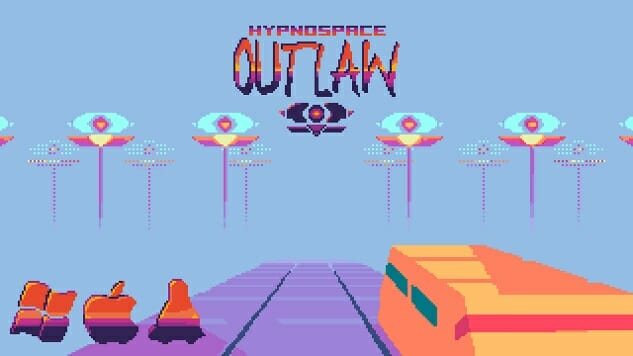Hypnospace Outlaw Revives the Internet of the ’90s with the Fears of Today

The internet of the early 2000s might as well be from a different planet. It was more intimate, more slapped together and personal. Sites like Geocities fashioned themselves after physical locations because for a long time, the internet wasn’t so much a fact of existence as it was a place, a land that existed only in your computer.
Hypnospace Outlaw (Jay Tholen, Tendershoot) is a game about a kind of internet, in a kind of 1999. It’s not our internet, and it’s not our 1999, but it’s close enough. It’s an alternate history game of the early digital age, where instead of the internet taking off it’s Hypnospace, an interface device that allows you to surf a digital web when you’re asleep. It makes sense—why not use that time for something productive?
It’s the conflict between these ideas—the net as a place of relaxation and the net as a place of productivity—that undergirds Hypnospace Outlaw. The company behind Hypnospace is exactly the kind of fake internet mogul of the dot-com bubble you’d expect, a combination of a whiz-kid hacker and his more businesslike brother. To Dylan Merchant, Hypnospace is an open frontier, an infinite realm of possibilities. To Adrian, it is a convenient vector for profit.
At the core of the Hypnospace service are brand relationships, fragile agreements between the few companies brave enough to invest advertising in a mostly-untested medium and the developers of Hypnospace, trying to corral their users into not reacting against the brands they’ve convinced to stay. They fail at this task, mostly, and the few attempts of corporate entryism into organic movements are quickly ferreted out by the more eagle-eyed and critical users. It is a very modern interpretation of the brand-service relationship, grafted on top of a very antiquated visual styling.

Just as with our real early 2000s internet communities, Hypnospace is a contentious place. Volunteer “enforcers” (paid in HypnoCoin, a currency only valid in Hypnospace) maintain order based on cracking down on activity on Hypnospace that violates the rules of the space. But, as you quickly find out, the rules aren’t enforced fairly, nor are they necessarily meant to be.
Because for all that Hypnospace Outlaw is a story about the past internet, it is as much a story about our own, current internet—the internet that grapples with questions of the role of moderation, of brand engagement in community spaces, with ads and branded content. Enforcers are unpaid, but are asked to do the work of anyone from community managers to police, with little to no explanations given to users. Copyrighted content is blocked with an iron fist, unless the copyrighted content comes from a staff member of Hypnospace, in which case rules are built to be bent.
-

-

-

-

-

-

-

-

-

-

-

-

-

-

-

-

-

-

-

-

-

-

-

-

-

-

-

-

-

-

-

-

-

-

-

-

-

-

-

-









































